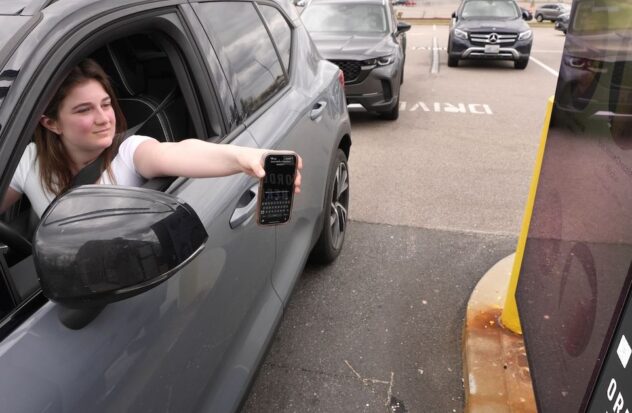PROVIDENCE, Rhode Island – The voice that Alexis “Lexi” Bogan had before last summer was exuberant. She loved belting out Taylor Swift and Zach Bryan ballads in the car.
He laughed all the time, even when he was checking on misbehaving preschoolers or debating politics with friends around a backyard bonfire. In high school, she was a soprano in the choir.
Then that voice disappeared.
In August, doctors removed a potentially fatal tumor lodged near the back of his brain. When the breathing tube was removed a month later, Bogan had trouble swallowing and had trouble saying “hello” to his parents. Months of rehabilitation helped her recover, but her speech is still affected. Friends, strangers, and her own family struggle to understand what she is trying to tell them.
In April, the 21-year-old regained her old voice. Not the real one, but a voice clone generated by artificial intelligence that she can activate from a phone application. Trained from a 15-second time capsule of her teenage voice—obtained from a cooking demonstration video she recorded for a school project—her synthetic but strikingly realistic AI voice can now say almost anything she wants.
You type a few words or phrases on your phone and the app instantly reads them out loud.
“Hi, can I have a large iced shaken espresso with oat milk and brown sugar, please?” Bogan’s AI voice said as he stuck his phone out the window of his car at a Starbucks drive-thru.
Experts have warned that the rapid improvement of AI voice cloning technology can amplify telephone scams, disrupt democratic elections and undermine the dignity of people—living or dead—who never consented to having their voice recreated to say things they never said.
It has been used to produce fake robocalls to New Hampshire voters imitating President Joe Biden. In Maryland, authorities recently charged a high school athletic director with using AI to generate a fake audio recording of the school’s principal making racist comments.
However, Bogan and a team of doctors at Lifespan Hospital Group in Rhode Island believe they have found a use that justifies the risks. Bogan is one of the first people, the only one with her illness, who has been able to recreate a lost voice with OpenAI’s new Voice Engine. Other AI providers, such as startup ElevenLabs, have tested similar technology for people with speech impairments and loss, including a lawyer who now uses her voice clone in court.
“We look forward to Lexi being a pioneer in the development of this technology,” said Dr. Rohaid Ali, a neurosurgery resident at Brown University School of Medicine and Rhode Island Hospital. Millions of people with debilitating strokes, throat cancer or neurodegenerative diseases could benefit, he said.
“We must be aware of the risks, but we cannot forget about the patient and the social good,” said Dr. Fatima Mirza, another resident working on the pilot project. “We can help Lexi regain her true voice and be able to speak in terms that are truest to herself.”
Source: AP






